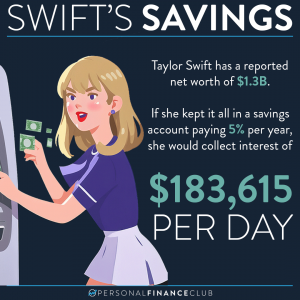



We don’t talk about REITs much. If you don’t know what a REIT is, it stands for real estate investment trust.
It’s a way to publicly trade big real estate investments. You’d own stuff that the individual investor wouldn’t normally have access to: office buildings, cell phone towers, hotels, storage facilities, etc. Managers will take the money, buy expensive real estate, take the rent, and feed it back to the owners. It’s a way to own real estate without the work.
So should you buy a REIT index fund?
If you’re looking for diversification, it’s important to know that REITs track closely to the stock market. So if the stock market does poorly, REITs probably would too. The point of diversification is to reduce your risk in the event that your assets perform poorly, so REITs will not really provide that benefit.
Also, REITs pay high dividends. Even if stock index funds and REITs both return exactly the same, REITs would grow more from dividends rather than an increased share price. (Think rent payments!) But remember that in your taxable brokerage account, you’ll have to pay taxes on your dividends every year. So, a REIT would cause you to pay more in dividend taxes than a stock index fund would.
Full disclosure, Jeremy personally has REITs in his portfolio. But if he were to do it over, he probably wouldn’t include them. Why? Because it adds complexity without the gains.
We love simplicity and still love the idea of investing it all into a single target date index fund. By adding more stuff, Jeremy would say that it is “throwing spaghetti against the wall” to see what sticks. 🍝
As always, reminding you to build wealth by following the two PFC rules: 1.) Live below your means and 2.) Invest early and often.
-Vivi
via Instagram

 September Sale!
September Sale! 



